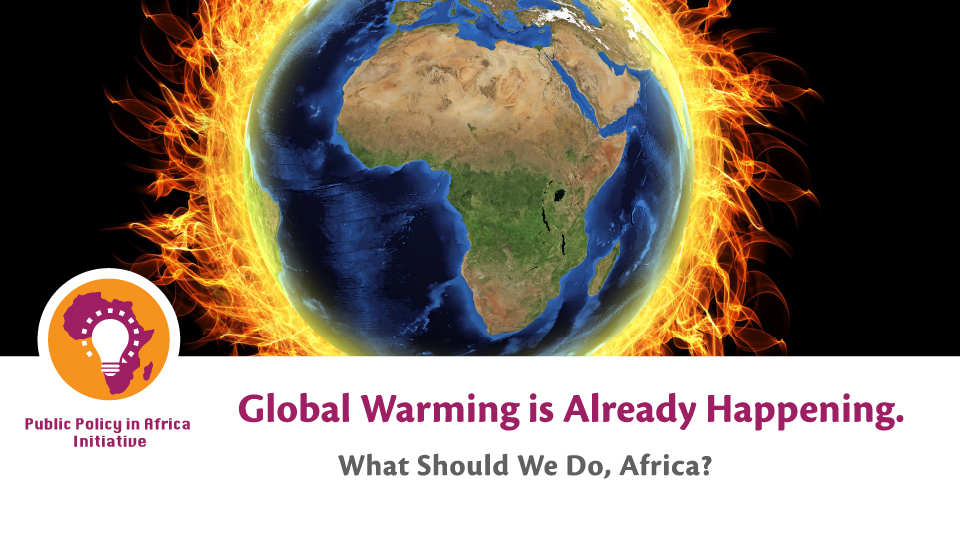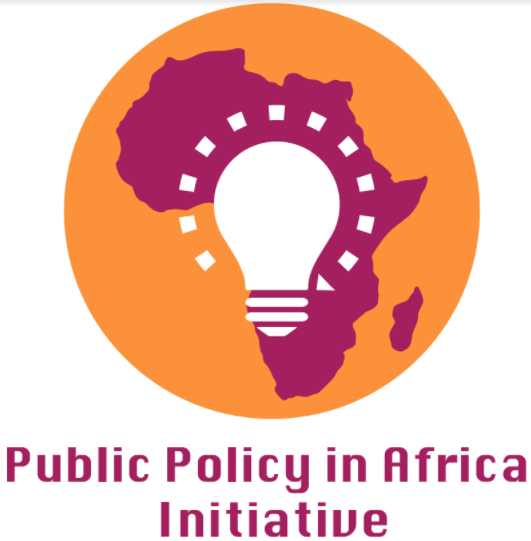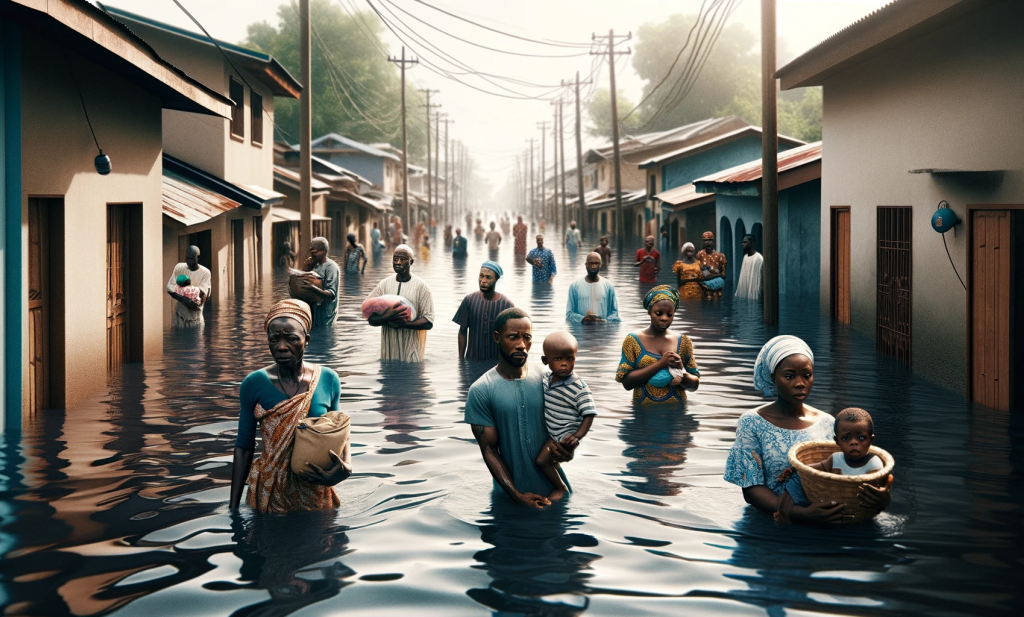Africa has already been greatly impacted by global warming. In 2020, there were 4.3 million internal displacements due to disasters1. Floods in Libya resulted in more than 4300 deaths2, an earthquake in Morocco caused more than 2,600 deaths and 300,000 affected3, and a drought in Somalia is estimated to have caused 43,000 deaths4. Additionally, climate-sensitive diseases in Burkina Faso have caused 8,256 deaths5. Climate change-related fatalities are already occurring across the continent, and more are expected.
My views on global warming have changed drastically over time. Initially, I thought of it as a scary, post-apocalyptic future. But as I researched more, I realized the true gravity of the situation. It became clear that human greed is leading to human suffering, particularly for those in low-income communities. Climate change has caused agricultural systems to be disrupted and has led to disasters in African environments, resulting in the loss of livelihood, nutrition, human capital, and development. Global warming is now.
Unlike some of you and me, many people, especially in rural Africa, need access to tertiary education, technology, and reliable information to gain critical knowledge about the environmental danger we face. Most of them do not possess the resources to survive climate change catastrophes they did not cause. For example, Africa only has 37 radar facilities to track weather, compared to the 345 radars that Europe uses and 291 in North America6. This lack of technological and resource preparedness leads to global-warming-related deaths that the less financially privileged in this world are already facing.
Estimates are that Africa could prevent 880,000 deaths per year by acting on air pollution and climate change7. Putting this into perspective, 880,000 people is four times the population of Seychelles or three times that of Barbados. These are incredibly many people's lives that could be saved yet are being lost due to a lack of climate change preparedness. In the case of the recent floods in Lybia, the World Meteorological Organization says, "If there would have been a normal operating meteorological service, they could have issued the warnings (in Libya), and lives could have been saved."8 Paradoxically, only human activities and resources, if well-intended with better and equitable approaches, could save these lives.
The main difference between high-income and low-income countries, such as some in Africa, is their ability to prepare for global warming. High-income countries have the financial resources to allocate some of their budgets to environmental catastrophes and the education and technology to inform their population of impending disasters while providing support after unwanted disasters. Low-income countries, however, lack these resources, making them more vulnerable to the worst effects of global warming.
African countries face a difficult challenge in allocating their limited resources to support internally displaced people, improve agricultural production, healthcare, and education, and reconstruct infrastructure damaged by environmental events. They need the financial means to invest in meteorological services without crowding out other priority spending.
Now that solutions to save the planet are increasingly discussed globally, most of us agree that we must protect forests like the Congo basin, the "lung of the world" for the survival of humanity. Others argue that indigenous communities should not be stopped from utilizing their environments for industrialization to save their communities for global goals. Despite opposing political views or opinions regarding the future of our earth, taking into account all these voices, especially indigenous voices, while moving forward is imperative. Indigenous communities have the resources to lead us into the cleaner future we want. It is their lands and well-kept environments we are counting on to survive. Therefore, fair trade between those with the money and those with the resources should be at rendez-vous.
African leaders ought to seize the chance to negotiate and collaborate with counterparts from the Global North and South for essential funding for their pivotal role in preserving their environment, without which the future of our planet is "doomed" In the meantime, African lives already succumbing to the threats of global warming need to be saved.

The issues that threaten the livelihoods of Africans are not impossible to overcome; their requests for funding to fight climate change are valid, and their lag in carbon credit discussions is justified. The challenge the continent faces lies in the lack of resources, both financial and technological, as well as in the historical inequalities stemming from colonialism, structural adjustment policies, neo-colonialism, and geopolitical conflicts.
The lives lost on the continent due to global warming are too many, and going forward, African leadership should be an integral part of decision-making.
Hence, as a global community, we should not expect African communities to forgo their reliance on forests for sustenance by regulations that are not advantageous to them. Second, it would be unfair to indigenous communities that those who have already destroyed the environment persist in emitting carbon while simultaneously demanding that those with forests relinquish their rights to their environment for a paltry sum so that they can continue to harm the planet. Third, there should be global equity. If we want Africa to help save the world, we should listen to Africa's plea for justice and assist them in rescuing themselves first. Indeed, we should invest billions in green technologies and what is necessary to protect our ecosystem. However, we should also invest in climate change preparedness so that we may all survive to enjoy the benefits of a better global environment.

This article was originally published at The Public Policy in Africa Initiative. You can find the original version here.
The authors gratefully acknowledge Hugue Nkoutchou for his helpful comments and Tim Klustner for editing this op-ed piece.
Unlike some of you and me, many people, especially in rural Africa, need access to tertiary education, technology, and reliable information to gain critical knowledge about the environmental danger we face. Most of them do not possess the resources to survive climate change catastrophes they did not cause. For example, Africa only has 37 radar facilities to track weather, compared to the 345 radars that Europe uses and 291 in North America6. This lack of technological and resource preparedness leads to global-warming-related deaths that the less financially privileged in this world are already facing.
Estimates are that Africa could prevent 880,000 deaths per year by acting on air pollution and climate change7. Putting this into perspective, 880,000 people is four times the population of Seychelles or three times that of Barbados. These are incredibly many people's lives that could be saved yet are being lost due to a lack of climate change preparedness. In the case of the recent floods in Lybia, the World Meteorological Organization says, "If there would have been a normal operating meteorological service, they could have issued the warnings (in Libya), and lives could have been saved."8 Paradoxically, only human activities and resources, if well-intended with better and equitable approaches, could save these lives.
The main difference between high-income and low-income countries, such as some in Africa, is their ability to prepare for global warming. High-income countries have the financial resources to allocate some of their budgets to environmental catastrophes and the education and technology to inform their population of impending disasters while providing support after unwanted disasters. Low-income countries, however, lack these resources, making them more vulnerable to the worst effects of global warming.
African countries face a difficult challenge in allocating their limited resources to support internally displaced people, improve agricultural production, healthcare, and education, and reconstruct infrastructure damaged by environmental events. They need the financial means to invest in meteorological services without crowding out other priority spending.
Now that solutions to save the planet are increasingly discussed globally, most of us agree that we must protect forests like the Congo basin, the "lung of the world" for the survival of humanity. Others argue that indigenous communities should not be stopped from utilizing their environments for industrialization to save their communities for global goals. Despite opposing political views or opinions regarding the future of our earth, taking into account all these voices, especially indigenous voices, while moving forward is imperative. Indigenous communities have the resources to lead us into the cleaner future we want. It is their lands and well-kept environments we are counting on to survive. Therefore, fair trade between those with the money and those with the resources should be at rendez-vous.
African leaders ought to seize the chance to negotiate and collaborate with counterparts from the Global North and South for essential funding for their pivotal role in preserving their environment, without which the future of our planet is "doomed" In the meantime, African lives already succumbing to the threats of global warming need to be saved.

The issues that threaten the livelihoods of Africans are not impossible to overcome; their requests for funding to fight climate change are valid, and their lag in carbon credit discussions is justified. The challenge the continent faces lies in the lack of resources, both financial and technological, as well as in the historical inequalities stemming from colonialism, structural adjustment policies, neo-colonialism, and geopolitical conflicts.
The lives lost on the continent due to global warming are too many, and going forward, African leadership should be an integral part of decision-making.
Hence, as a global community, we should not expect African communities to forgo their reliance on forests for sustenance by regulations that are not advantageous to them. Second, it would be unfair to indigenous communities that those who have already destroyed the environment persist in emitting carbon while simultaneously demanding that those with forests relinquish their rights to their environment for a paltry sum so that they can continue to harm the planet. Third, there should be global equity. If we want Africa to help save the world, we should listen to Africa's plea for justice and assist them in rescuing themselves first. Indeed, we should invest billions in green technologies and what is necessary to protect our ecosystem. However, we should also invest in climate change preparedness so that we may all survive to enjoy the benefits of a better global environment.

This article was originally published at The Public Policy in Africa Initiative. You can find the original version here.
The authors gratefully acknowledge Hugue Nkoutchou for his helpful comments and Tim Klustner for editing this op-ed piece.
REFERENCES
1. Offmann, R. (2022, May 5). Contextualizing climate change impacts on human mobility in African drylands. https://agupubs.onlinelibrary.wiley.com/doi/10.1029/2021EF002591
2. UNICEF. (n.d.). Devastating floods in Libya. https://www.unicef.org/emergencies/devastating-flooding-libya
3. At least 100,000 children affected by Morocco earthquake. UNICEF. (n.d.-a). https://www.unicef.org/press-releases/least-100000-children-affected-morocco-earthquake#:~:text=The%20United%20Nations%20estimates%20that,are%20only%20likely%20to%20increase
4. UNICEF. (n.d.). New Study finds that 43,000 "excess deaths" may have occurred in 2022 from the drought in Somalia. https://www.unicef.org/press-releases/new-study-finds-43000-excess-deaths-may-have-occurred-2022-drought-somalia#:~:text=Somalia%20is%20enduring%20five%20consecutive,7.6%20million%20people%20in%202023.
5. Arisco, N. J., Sewe, M. O., Bärnighausen, P. T., Sié, A., & Zabre, P. (2023, June). The effect of extreme temperature and precipitation on cause-specific deaths in rural Burkina Faso: a longitudinal study. https://www.thelancet.com/journals/lanplh/article/PIIS2542-5196(23)00027- X/fulltext
6. Al Jazeera. (2023, September 3). Africa Faces "climate risk blind spot" amid lack of weather radar. Climate Crisis News | Al Jazeera. https://www.aljazeera.com/news/2023/9/3/africa-faces-climate-risk-blind-spot-amid-lack-of-weather-radar
7. Integrated Assessment Of Air Pollution And Climate Change For Sustainable Development In Africa (n.d). https://wedocs.unep.org/bitstream/handle/20.500.11822/41224/air_pollution_climate_br.pdf?sequence=1
8. Elumami, A., Al-Warfali, A., & Alfetori, E. (2023, September 15). Libya floods: Search for blame for thousands of deaths. Reuters. https://www.reuters.com/world/africa/libya-flood- survivors-pick-through-ruins-search-missing-thousands-2023-09-14/
1. Offmann, R. (2022, May 5). Contextualizing climate change impacts on human mobility in African drylands. https://agupubs.onlinelibrary.wiley.com/doi/10.1029/2021EF002591
2. UNICEF. (n.d.). Devastating floods in Libya. https://www.unicef.org/emergencies/devastating-flooding-libya
3. At least 100,000 children affected by Morocco earthquake. UNICEF. (n.d.-a). https://www.unicef.org/press-releases/least-100000-children-affected-morocco-earthquake#:~:text=The%20United%20Nations%20estimates%20that,are%20only%20likely%20to%20increase
4. UNICEF. (n.d.). New Study finds that 43,000 "excess deaths" may have occurred in 2022 from the drought in Somalia. https://www.unicef.org/press-releases/new-study-finds-43000-excess-deaths-may-have-occurred-2022-drought-somalia#:~:text=Somalia%20is%20enduring%20five%20consecutive,7.6%20million%20people%20in%202023.
5. Arisco, N. J., Sewe, M. O., Bärnighausen, P. T., Sié, A., & Zabre, P. (2023, June). The effect of extreme temperature and precipitation on cause-specific deaths in rural Burkina Faso: a longitudinal study. https://www.thelancet.com/journals/lanplh/article/PIIS2542-5196(23)00027- X/fulltext
6. Al Jazeera. (2023, September 3). Africa Faces "climate risk blind spot" amid lack of weather radar. Climate Crisis News | Al Jazeera. https://www.aljazeera.com/news/2023/9/3/africa-faces-climate-risk-blind-spot-amid-lack-of-weather-radar
7. Integrated Assessment Of Air Pollution And Climate Change For Sustainable Development In Africa (n.d). https://wedocs.unep.org/bitstream/handle/20.500.11822/41224/air_pollution_climate_br.pdf?sequence=1
8. Elumami, A., Al-Warfali, A., & Alfetori, E. (2023, September 15). Libya floods: Search for blame for thousands of deaths. Reuters. https://www.reuters.com/world/africa/libya-flood- survivors-pick-through-ruins-search-missing-thousands-2023-09-14/
Related



